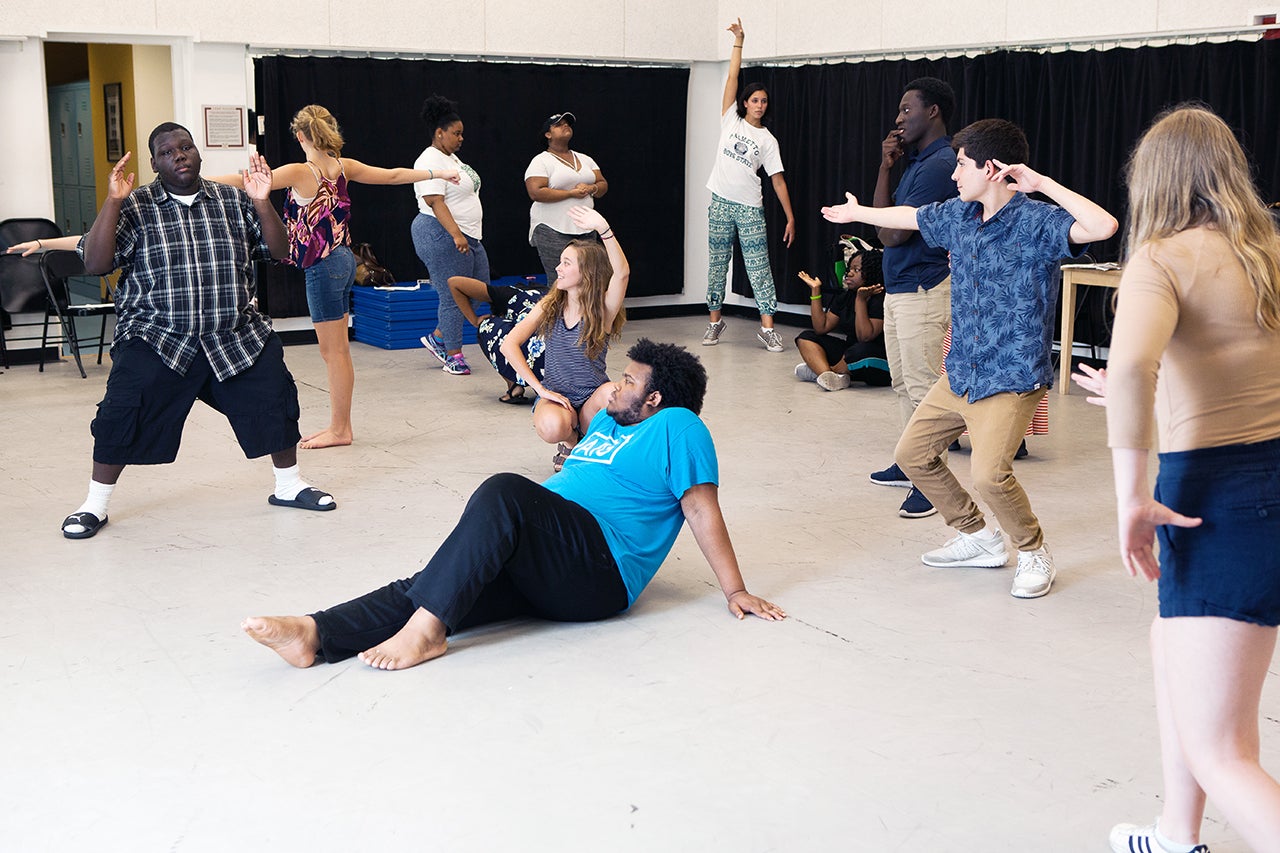A partnership between the College’s Department of Theatre and Dance and a New York City-based drama program sponsored by actor Tony Danza gave middle and high school students a new perspective last week as they explored different themes about what it means to be American.
The department hosted 25 teens for a week-long drama camp July 24 – July 28, 2017, as part of the “We the People Summer Program.” The camp brought together students from the Musical Theater Center in Mt. Pleasant, South Carolina, and the New York City Police Athletic League (PAL) Teen Acting Program, which Danza recently launched as part of his role as a member of the organization’s board of directors.
The program at CofC was the brainchild of Brian Hills, program manager of theatre arts for PAL’s Teen Acting Program, and CofC theatre professor Laura Turner. Hills, who is originally from Union, South Carolina, reached out to the College with the goal of establishing a partnership that could offer his students new cultural experiences outside of their home state of New York. Danza helped pay for the students’ trip to Charleston.
“Bringing them out of their various boroughs into the mainstream of mid-town and lower Manhattan is one aspect of the program,” says Hills. “But I wanted them to be out of New York altogether and have them come to an entirely different culture, a place where the pace is a lot different. It’s just another aspect of them having the opportunity to see how large the world is.”
Students spent the week visiting historical sites throughout Charleston, including Boone Hall Plantation, the Old Slave Mart Museum, the Old Exchange and the Aiken-Rhett House Museum. They then used those experiences as the basis for dramatic vignettes.
“It was all about taking the history and cultural exchange between students from the north and south and then taking those ideas and creating something that expresses the students’ point of view,” explains Turner. “The program was based on the idea off ‘we the people in order to form a more perfect union,’ so we wanted them to be thinking about it (the United States Constitution) not as a static historical document, but as a document describing an active process – one in which ‘We’ as ‘the People’ are still trying to form a more perfect union.”
The result was a series of short dramatic performances ranging from movement pieces to tableau that juxtaposed Charleston’s use of its historical buildings as tourist attractions and the actual history of those properties, including slavery, war and economic disparity.
For 14-year-old Ivy Otera, the experiences were great starting points from which to make dramatic art.
“We discussed every place we visited to see how we felt,” Otera says. “From there we started building performances, thinking like ‘OK, so you feel these kinds of words so how would you show those feelings in a movement piece. That’s how we kind of started it all.”
And that approach, says 16-year-old Charlotte Marchell of the Musical Theater Center, made the performances more meaningful.
“It’s really focused around the process and learning and learning about each other,” she says. “It’s been all about the whole idea of how to form a more perfect union.”
The students’ efforts culminated in a performance at the end of the week at the College’s Marion and Wayland H. Cato Jr. Center for the Arts. Hills and Turner say the camp transcended theatre to give the students from both New York and Charleston a new view of the world.
“We are helping the students use the craft (of the dramatic arts) and learn how to use those tenets within their lives to see the world in a much larger way,” says Hills.
Turner adds, “They all share that art. It’s overarching beyond what they look like, beyond their age, beyond their economic means and beyond their geography.”
Featured image of ‘We the People’ campers practicing dramatic movement as they prepare to rehearse a vignette inspired by their visit to Boone Hall Plantation. (Photo by Reese Moore)





